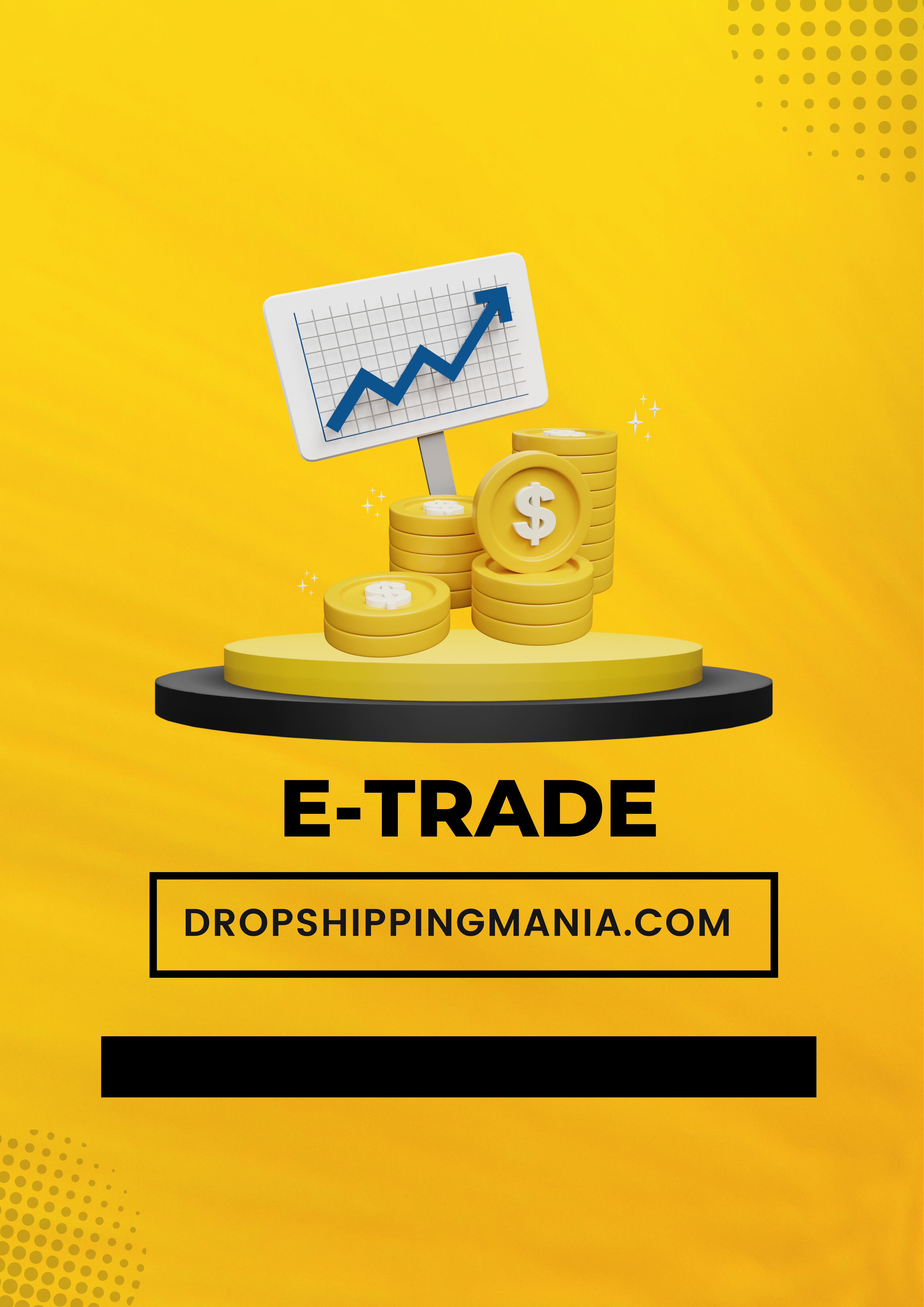E-Trade

In today’s world, it is more important than ever to make sure that your investments are working for you. One of the best ways to do this is to take advantage of electronic trading or “E-trade”. E-trade is a process of investing in securities using an online broker. It’s quick and easy, and it allows investors to execute trades from anywhere at any time. In this blog post, we’ll be taking a look at what e-trade is, how it works, and the pros and cons associated with it. So whether you’re a beginner or a seasoned investor, there’s something here for everyone!
What does e- trade do?

E-Trade is an online discount stock brokerage firm that offers a variety of services to its clients, including trading penny stocks. It allows its clients to trade online without having to pay commission fees.
E-Trade also provides its clients with access to research and analysis tools so they can make informed investment decisions. In addition, E-Trade offers educational resources to help its clients learn about the stock market and investing.
How much money do you start with on e-trade?
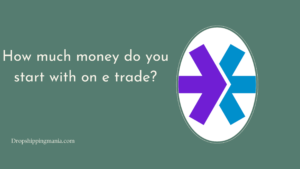
Assuming you are talking about an E-Trade account, when you open an account with them, you can deposit as little as $500. However, there is no minimum balance required to keep your account open and maintain trading privileges.
How do I start an e trade?
Assuming you would like content for a blog titled “E-Trade”:
E-Trade is an online broker that offers individuals the ability to trade stocks, bonds, and other securities. The company also provides other services, such as banking and retirement planning. To start trading with E-Trade, you will need to open an account and deposit money into it. Once your account is funded, you can begin buying and selling securities.
Does e Trade have monthly fees?
Yes, E-Trade does have monthly fees. These fees are typically charged by the account holder’s broker and can vary depending on the type of account. For example, an account with a higher number of trades may be subject to a higher monthly fee. Additionally, some accounts may also be charged for inactivity if there is no trading activity for a period of time.
What are the cons of E trade?
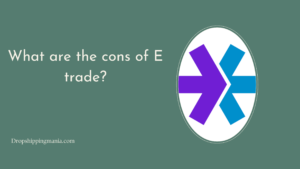
There are a few potential drawbacks to using E-Trade that investors should be aware of. First, the company charges higher than average fees for some of its services. For example, E-Trade charges $19.99 for broker assisted trades, while most other online brokerages charge between $10 and $15 for this service. In addition, the company has known to make it difficult for customers to close their accounts and withdraw their money. Finally, E-Trade’s customer service is not always responsive or helpful, which can be frustrating for investors who need assistance with their accounts.
Does E trade charge to withdraw money?
If you’re an E-Trade customer, you can withdraw money from your account without paying a fee. There are several ways to do this, including using an ATM, writing a check, or transferring funds to another account.
ATM withdrawals are free for E-Trade customers who have the Platinum Debit Card. To get the card, you must maintain a balance of $5,000 in your account or make 30 trades per quarter. Check withdrawals are also free for customers with certain accounts. For example, if you have an IRA with E-Trade, you can make up to three withdrawals per month without incurring a fee.
If you need to withdraw more than what’s allowed for free, you can still do so for a fee. For example, if you have an account with E-Trade and want to withdrawn $500 in cash, it will cost you $25. This is because E-Trade charges a flat fee of $25 for any withdrawal that exceeds the free limit.
What is the fastest way to make money on E trade?
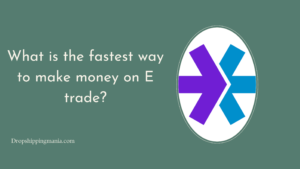
The answer to this question may vary depending on who you ask but we have a few suggestions for making money on E-Trade.
1. Use limit orders: A limit order is an order to buy or sell a security at a specified price or better. This ensures that you will only transact at the price you are comfortable with and can avoid market fluctuations.
2. Take advantage of market conditions: Study the market and look for conditions that are favorable for your trading strategy. Then, execute trades accordingly.
3. Use stop-loss orders: A stop-loss order is an order placed with a broker to buy or sell a security when it reaches a certain price. This can help you minimize losses if the market turns against you.
4. Review your trades: After executing a trade, take some time to review what happened and why. This will help you learn from your mistakes and improve your trading strategy over time.
How much cash can I withdraw from E trade?
There is no limit to how much cash you can withdraw from E-Trade. However, there are limits on how much you can deposit into your account each day and how much you can withdraw from your account each day. These limits vary depending on the type of account you have and the method you use to withdraw funds.
What is the minimum balance for E-Trade?
Assuming you are talking about an account with E-Trade, the minimum account balance is $500. This will allow you to start trading stocks and ETFs. If you want to trade options, the minimum account balance is $2,000.
How do e traders make money?
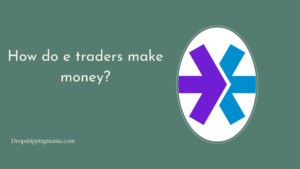
There are a few ways that e-traders make money. The most common is through commission fees charged per trade. Others include collecting interest on the cash balances in accounts, charging monthly service fees, and earningrebates from market makers for providing liquidity to the markets.
Is E-Trade good for day trading?
E-Trade is one of the most popular online brokers, and for good reason. It offers a user-friendly platform, reasonable commissions, and a wide array of investment options. But is it really the best broker for day trading?
To answer that question, let’s first look at what day trading is. Day trading is a type of short-term investing in which you buy and sell stocks within the same day. Because you’re holding the stock for such a short period of time, you need to be able to move quickly and execute trades at the click of a button. You also need access to real-time data so that you can make informed decisions about when to buy and sell.
So how does E-Trade stack up? The platform is certainly user-friendly and easy to use. Commissions are also reasonable, at $6.95 per trade. However, there are some drawbacks. First, E-Trade does not offer direct access to the major exchanges, which can delay execution times. Second, the platform can be slow and unreliable during periods of high market volatility.
Overall, E-Trade is a decent option for day trading if you’re looking for a user-friendly platform and reasonable commissions. However, there are better options out there if you’re willing to pay slightly higher fees or trade on a different exchange.
Is E-Trade better or Robinhood?
The two platforms offer different trade types. E-Trade offers more traditional investment vehicles like stocks, bonds, and mutual funds, while Robinhood specializes in options and cryptocurrency.
E-Trade has been in the game longer, so their platform is more user-friendly and polished. Robinhood’s interface is pretty basic and can be confusing for new investors.
Both platforms offer mobile apps, but E-Trade’s app is better designed and easier to use.
E-Trade has more resources for research and education, which can be helpful for new investors. Robinhood doesn’t have as much in the way of research tools.
E-Trade charges commissions on trades, while Robinhood does not. This makes Robinhood the better choice for frequent traders.
So, which platform is better? It depends on your individual needs and preferences. If you’re a beginner investor who wants access to a variety of investment vehicles and educational resources, E-Trade is a good choice. If you’re an experienced investor who trades frequently, Robinhood may a better fit due to its commission-free trading.
What bank runs E-Trade?
E-Trade is a leading online broker that provides trading platforms for stocks, options, futures, and more. The company is headquartered in New York City and has over 30 years of experience.
E-Trade is a subsidiary of TD Ameritrade, one of the largest online brokerages in the United States. TD Ameritrade acquired E-Trade in 2020 and now offers both E-Trade’s platform and its own to its customers.
What percentage does E-Trade take?
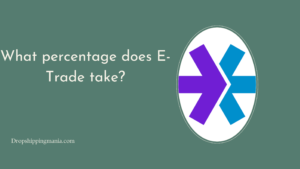
E-Trade is a brokerage firm that allows people to invest in stocks, bonds, and other securities. The company charges a commission for each trade, which is typically around $10 per trade. However, there are also fees for other services, such as account maintenance and data storage. Overall, E-Trade’s fees are relatively low when compared to other brokerages.
Is Fidelity better than E-Trade?
There are a lot of different online brokers out there, and it can be tough to decide which one is right for you. If you’re looking at Fidelity and E-Trade, you might be wondering which one is better.
Both Fidelity and E-Trade offer a lot of great features, but there are some key differences that you should keep in mind. First, let’s look at the fees. E-Trade charges $6.95 per trade, while Fidelity charges $4.95 per trade. So if you’re a frequent trader, Fidelity will save you some money in fees.
Another key difference is in the investment options offered. Fidelity offers a wider range of investment options, including stocks, bonds, mutual funds, and ETFs. E-Trade only offers stocks and ETFs. So if you’re looking for more diverse investment options, Fidelity is the way to go.
Finally, it’s worth mentioning that Fidelity has much better customer service than E-Trade. If you have any problems or questions about your account, it’s easy to get in touch with a human being at Fidelity who can help you out. With E-Trade, it can be more difficult to get help when you need it.
So overall, we think that Fidelity is the better choice for most investors. But ultimately it comes down to personal preference – so make sure to do your own research before making any decisions!
Which broker should I use as a beginner?
If you’re just getting started in the world of online stock trading, the sheer number of different brokerages can overwhelming. But don’t worry – we’re here to help! In this article, we’ll give you some tips on what to look for when choosing a broker, and introduce you to a few of our favorites.
The first thing you’ll want to consider is what type of trader you are. Are you looking to make long-term investments, or do you prefer to trade frequently? Different brokers offer different features and services, so it’s important to find one that aligns with your trading style.
Once you’ve considered that, it’s time to start looking at specific brokers. When doing your research, pay attention to things like fees, account minimums, customer service, and investment options. And don’t forget to read the fine print! You want to make sure you understand all the terms and conditions before signing up.
Now that you know what to look for, here are a few of our top picks for beginner-friendly brokerages:
Robinhood: This brokerage is best for those who want to trade frequently and without fees. They don’t have an account minimum, so you can start trading with whatever amount of money you have. And their customer service is excellent – they even have a chatbot available 24/7 if you need help outside of normal business hours.
Charles Schwab: If you’re looking for a full
Which is the best trading platform?
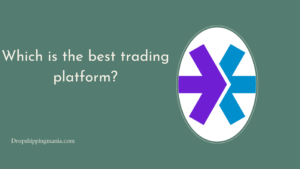
In order to trade stocks online, you need a reliable and user-friendly trading platform. There are many different options out there, so it can be difficult to choose the best one for your needs. Here is a breakdown of some of the most popular trading platforms to help you make a decision.
E-Trade is a well-known online broker that offers a comprehensive trading platform with all the features and tools you need to trade successfully. The platform is web-based and designed for simplicity and ease of use. It includes streaming quotes, charts, news, and analysis tools. E-Trade also offers mobile apps for iPhone, iPad, and Android devices so you can trade on the go.
Charles Schwab is another popular online broker that offers a great trading platform. The platform includes powerful tools for research and analysis as well as streaming quotes and charts. You can also place trades directly from the charts. Schwab also has mobile apps available for iPhone, iPad, and Android devices.
Fidelity Investments is another top choice for online stock trading. The Fidelity trading platform provides everything you need to research stocks, place trades, and manage your portfolio. It includes streaming quotes, advanced charting tools, news and research data, and more. Fidelity also offers mobile apps for iPhone, iPad, Android phones and tablets.
Does E trade report to the IRS?
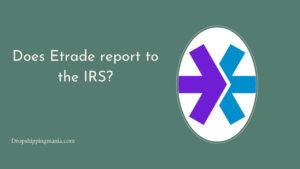
Yes, E-Trade is required to report information about your account to the IRS. This includes your name, address, and Social Security number. Additionally, E-Trade will report the following information to the IRS:
-The total amount of interest earned on your account during the tax year
-The total amount of dividends and capital gains paid out to you during the tax year
-The cost basis of any securities sold during the tax year (this is used to determine whether you have a capital gain or loss on the sale)
E-Trade will provide you with a 1099 form at the end of the year that summarizes this information for you. It is important to note that you are responsible for ensuring that all information reported by E-Trade to the IRS is accurate. You should keep good records of all transactions made in your account throughout the year so that you can properly report them on your taxes.
If you need to make money on online then visit this link


